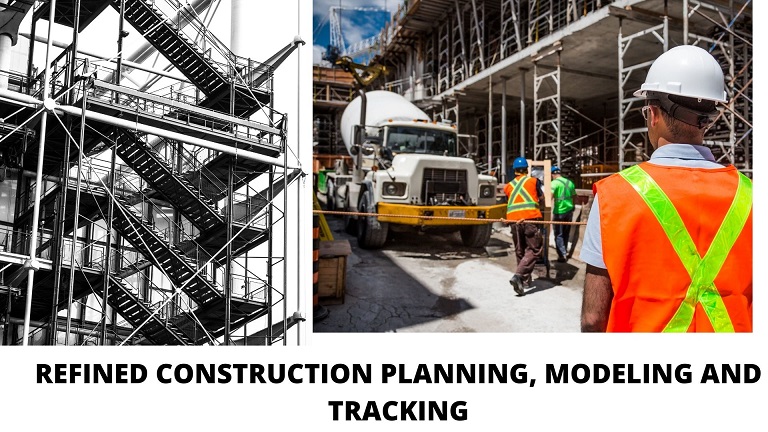Gain victory in civil engineering with data science
Table of Contents
ToggleIntroduction of Data Science in Civil Engineering
Hello, folks! Are you a civil engineer seeking data science education? You’ve found the right place; today we’ll talk about a variety of topics, including applications of data science in civil engineering, the construction industry, construction management, civil engineering data systems, data analytics in civil engineering, artificial intelligence in civil engineering, machine learning in civil engineering, and one of the most frequently asked questions, Can a Civil Engineer Become a Data Scientist?
Almost every industry is becoming entirely overtaken by data, even some that you would not immediately equate with data. It results in ongoing technological advancement. The construction industry is still plagued by poor planning, management, and budgeting. It has several problems, cost overruns, a low return on construction assets, and proportional mistakes. Data science is not a new concept in civil engineering.
Additionally, the construction’s processes were subpar. Data science is needed to support development throughout all of its stages. The figures are used by the construction companies to improve building sites and manage the development process.
The Construction Industry and Data Science
Advanced analytical analytics for forecasting
One of the most crucial applications of data science is prediction. Forecasts are made using predictive analytics, which examines a lot of data. Real-time data tracking is done in advanced data analytics to give substantial knowledge for forecasting. These forecasts have now turned out to be quite helpful in revolutionising data science in the field of civil engineering and the building sector.
Incorporating simulations
Simulators are a game-changing tool that data science in civil engineering offers to the construction sector. This simulator programme provides a faithful representation of the construction process on a construction site. Understanding the underlying habits in various situations is vital to the process. In order to design and manage projects with a futuristic perspective, simulations are essential.
Construction Management and Planning Prediction
Civil engineers can use prediction to avoid issues that can occur during the operation and erection processes on the building sites. Huge architectural constructions and systems need a lot of calculations, including combined calculations. Making forecasts with data science in civil engineering will be helpful.
Risk analysis for projects
Successful operations depend on a thorough analysis of the hazards related to the process design. An examination of the potential problems, assets, and outcomes is the goal of risk assessment. Civil engineers may readily plan, detect, categorise, evaluate, monitor, and respond to issues that develop during the building process with the use of a variety of contemporary data science tools and methodologies.
Due to the many variables involved, construction projects are frequently quite complicated. A probabilistic technique is used by data science in civil engineering technologies to resolve these issues.
Enhancing Procedures
Money and time are two very important resources for every construction company. The goal of business leaders is to maximise every dollar’s potential return. Tools and technology for data science in civil engineering enable civil engineers to systematically improve a number of construction-related processes. Profits might be increased as a consequence, which is good for the organisation.
Automation
Applications, tools, and intelligent robots powered by artificial intelligence (AI) are making the development process much more efficient and quick. Construction organisations have found automation to be very advantageous since the use of autonomous machines and automated printing robots greatly increases the efficiency of the construction process. Data science in civil engineering reduces the complexity of construction and improves the efficiency of designing and building
AI and Machine Learning in Civil Engineering
Tools for artificial intelligence and machine learning help civil engineers and project managers improve the performance of their projects. AI and machine learning approaches decrease the company’s costs while simultaneously reducing the company’s environmental impact and delivery times.
Huge volumes of cloud-stored data are used by these data science tools to assess and improve performance. This data given by AI and ML algorithms may be used by data scientists in civil engineering and construction managers to uncover project flaws that might significantly affect a project’s success or failure.
FIVE WAYS DATA IS HELPING THE INDUSTRY OF CONSTRUCTION & CIVIL ENGINEERING
FIRST INNOVATION: IMPROVED PERSPECTIVE ON FUTURE INITIATIVES
Big data technology aids engineers in creating expansive infrastructures while preventing difficulties that are typically unanticipated. For instance, every contemporary city’s infrastructure would be incomplete without public transit services.
By lowering the impacts of fossil fuel emissions and energy consumption, civil engineers may learn how to minimise the environmental impact of public transportation.
The technology helps civil engineers and companies like Black & Veatch make use of land patterns in the most effective way possible and design Smart Cities that utilize the most effective, functional and environmentally friendly transportation routes available.
INNOVATION 2: IMPROVED ANALYSIS OF PAST INITIATIVES
Large structures can produce considerable costs. Hong Kong International Airport (HKIA), for example, generated $25.2 billion in operational expenses in the year 2016, and the Al Maktoum International Airport in Dubai generated $34 billion in operational expenses in 2014. Such massive infrastructures require the expertise of civil engineers for efficient design, construction and ongoing management. For ventures of large magnitude, such as the Hong Kong and Dubai airports, stakeholders will often recruit engineers with two or more decades of experience. Today’s civil engineers use big data technology to evaluate information from many sources and determine the best course of action for effective management.
Engineers also use data to lever marketing strategies to gain better insight on expanding their business and customer outreach.

REFINED CONSTRUCTION PLANNING, MODELING, AND TRACKING IS INNOVATION 3
Large-scale resources are needed for construction projects, and this produces a lot of information. The construction sector, which has long been linked to intensive calculation and accounting, is a perfect fit for big data. Despite this relationship, the construction industry has been slower than other sectors to adopt big data technology. However, recently, big unstructured data sets have begun to be evaluated by construction companies using real-time, cloud-based technology. The use of this technology may enhance communication between property owners, engineers, and architects.
ADVANCED ANALYSIS OF TRANSPORTATION INFRASTRUCTURE (INNOVATION 4)
Massive volumes of data collected by Iowa traffic systems are being evaluated and analysed by transportation researchers utilising big data technologies. The experts work to enhance traffic control and swiftly identify incidents. For instance, researchers are working on a big data system that, as its name implies, would identify and respond to traffic accidents at the Realtime Analytics of Transportation Data Lab (REACTOR), which is housed at the Center for Transportation Research and Education (CTRE). The Iowa Department of Transportation (DOT) is working with the researchers to develop more effective management and operational choices. The system gathers traffic information for the whole state, including speed monitoring, measures of the volume of traffic, video recordings, meteorological data, and other metrics.

Innovation 5: A UNIFIED KNOWLEDGE BASE IS CREATED THROUGH THE COMBINATION OF DATA BY ARTIFICIAL INTELLIGENCE.
According to analysts, artificial intelligence will lead to the next industrial revolution (AI). This is especially true for the construction sector, where it is the responsibility of civil engineers to increase project performance by lowering costs, delivery times, and environmental effect.
The best instrument to help construction managers and engineers achieve these goals is artificial intelligence. Terabytes of data kept on the cloud by major service providers like Google, Oracle, and IBM are used by the technology. AI will intervene to ensure that knowledgeable civil engineers don’t miss a chance for improvement when big data technology delivers solutions that humans can’t easily discover.
Conclusion
Finally, we can state that the use of data science in civil engineering is quite broad. It is a new field with enormous potential and demand in the economy. With its wide range of tools and methodologies, data science will revolutionise the construction sector. Data scientists can be used by civil engineers to make use of vast volumes of data collected by highly technological computing systems.
With the use of data science, they may uncover the solutions buried in the massive collection of unstructured data in order to accomplish company objectives and increase profitability. Do you want to know more about cyber security? Check out this fantastic cyber security article by clicking here.
Q&A
Data science can analyze project data to predict delays, optimize resource allocation, and enhance decision-making, leading to efficient project management.
Data science can analyze material properties, costs, and environmental impacts to assist in selecting the most suitable and sustainable materials for construction projects.
Data science can analyze traffic patterns, historical data, and real-time information to optimize road designs and traffic flow in urban planning projects
Yes, data science can analyze energy consumption patterns to recommend efficient HVAC systems, lighting solutions, and insulation for buildings.
Data science can analyze rainfall patterns, water quality data, and usage trends to optimize water distribution, detect leaks, and ensure sustainable water resource management.
Data science can analyze seismic data to predict earthquake risks, design structures that can withstand earthquakes, and create early warning systems.
Data science can analyze demographic data, transportation patterns, and infrastructure usage to create efficient and sustainable urban plans.
Data science can analyze traffic data, commuter behavior, and transit systems to design efficient transportation networks and reduce congestion.
Yes, data science can analyze data related to air quality, noise levels, and ecological impacts to provide accurate environmental impact assessments for construction projects.


